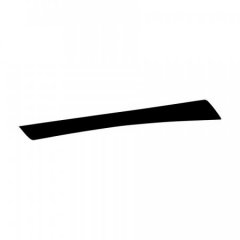Couplets
A couplet (對聯) is a pair of lines of meter. One may often see them on the sides of doorways or on columns on either sides of a passage. If some architectural structure has a line of text on either side of it with the same number of characters in both lines, it's probably a couplet. Also, many poems are made entirely of couplets. Couplets mounted around the Spring Festival are called 春聯.
All couplets have the following features.
- Both lines have the same number of characters.
- The lexical category of each character in one line is the same as that of its corresponding character in the other line.
- The tone pattern of the even-ordered characters in one line is the inverse of that of the other. That is if one character is of a level (平) tone, its corresponding character in the other line is of an oblique (仄) tone, and vice versa. This is also usually the case in the odd-ordered characters.
- The last character of the first line is of an oblique tone, which forces the last character of the second line to be of a level tone.
- The meaning of the two lines are related, with each pair of corresponding characters having related meanings also.
An example of a couplet is
天增歲月人增壽
春滿乾坤福滿門
The tone pattern is
平平仄仄平平仄
平仄平平仄仄平
Middle Chinese tones can be looked up in 廣韻, whose data have been entered into an Excel database available for download here.
Quiz:
This and this are links to images of two lines in a couplet. Which should be on the left and which should be on the right?
Extra credit:
According to the blog entry "5 Steps to Reading Classical Poetry in Modern Mandarin", write how one should read this couplet in Pinyin.


1 Comment
Recommended Comments